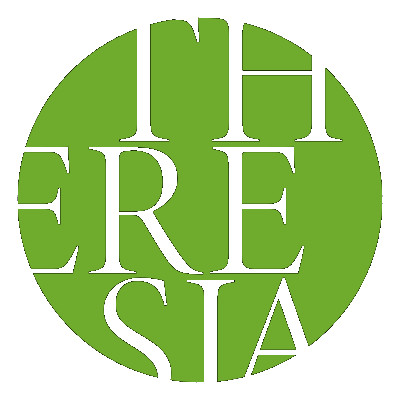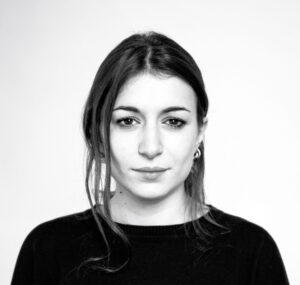
Among the various opportunities Theresia offers its musicians is a capacity-building programme that includes workshops, courses, and seminars designed to cultivate broader skills crucial for young musicians shaping their professional futures. The Theresia Academy is training scheme that goes beyond traditional rehearsals and instrument study. Co-funded by the EU as part of the Empower project, ICONS runs this comprehensive training programme. The various modules range from improving communication skills and self-care practices, to integrating soft skills with high musical proficiency.
One specific seminar is dedicated to coaching musicians in developing music business ideas. This module is led by Claudia Crippa, Head of Business Innovation at ICONS and Lorenzo Morelli, Junior Officer Business Innovation at ICONS. We spoke with Claudia and Lorenzo to find out more about the course they teach.
What does your training module cover?
In the organisation, economic and managerial skills module, we are mainly focusing on the use of an effective business planning tool known as the “Business Model Canvas”. This tool is essentially a framework with various sections that cover goals, activities, partnerships, and other crucial aspects that need to be taken into consideration when structuring any professional or business activity.
Why do you think this business course is useful for emerging musicians?
Getting to know the inner mechanisms of a business plan can be immensely useful for emerging musicians. It helps them clarify their goals, chart their career path in the music industry, and identify the necessary steps to achieve success. These questions-and answers-can span strictly musical objectives (how to become a permanent or regular member of an orchestra, how to set up an ensemble, or how to get into teaching) and broader career strategies such as event planning and management. We also offer insights into personal aspects on how best to manage one’s energy, ensuring a holistic approach to career development.
What were the goals identified by the course participants, and how did they work towards them?
The most common goal, understandably, is achieving financial stability: which became the focal point of our workshop. We explored the steps necessary to achieve this goal, starting with identifying stakeholders – colleagues to interact with and target audiences to address. We take a closer look at the importance of improving personal skills, ranging from strictly musical and technical proficiency to interpersonal skills. Participants then identified specific needs, such as the costs associated with further education or instrument maintenance. This led to the key question: how can these financial needs be met? how can I earn the money I need to pay for a courses or instrument check-up? The responses were diverse and enlightening ranging from the most obvious “get a contract in an orchestra” to the more creative approaches such as “organising concerts and sell tickets” to “participating in public calls for grants aimed at supporting young artists”.
How were the lessons structured?
The lessons began with an introductory explanation of the model. In a next phase, participants were divided into small groups to gather feedback and stimulate discussion. This approach encouraged peer interaction, allowing diverse and innovative ideas to emerge from withing the group. Finally, we provided personalised feedback to further refine individual understanding and application of the concepts discussed.
Did the course conclude with the completion of the Business Model Canvas?
Well yes, the core components were covered in the basic part of the seminar. Additionally, there was an optional module that consisted on designing, as concretely as possible, an event: the ideas that emerged in the first phase was often general, and participants had to investigate the various economic, logistical, and organisational aspects to gain a better understanding of the practical issues involved. We offer support throughout this process to ensure practical implementation.




